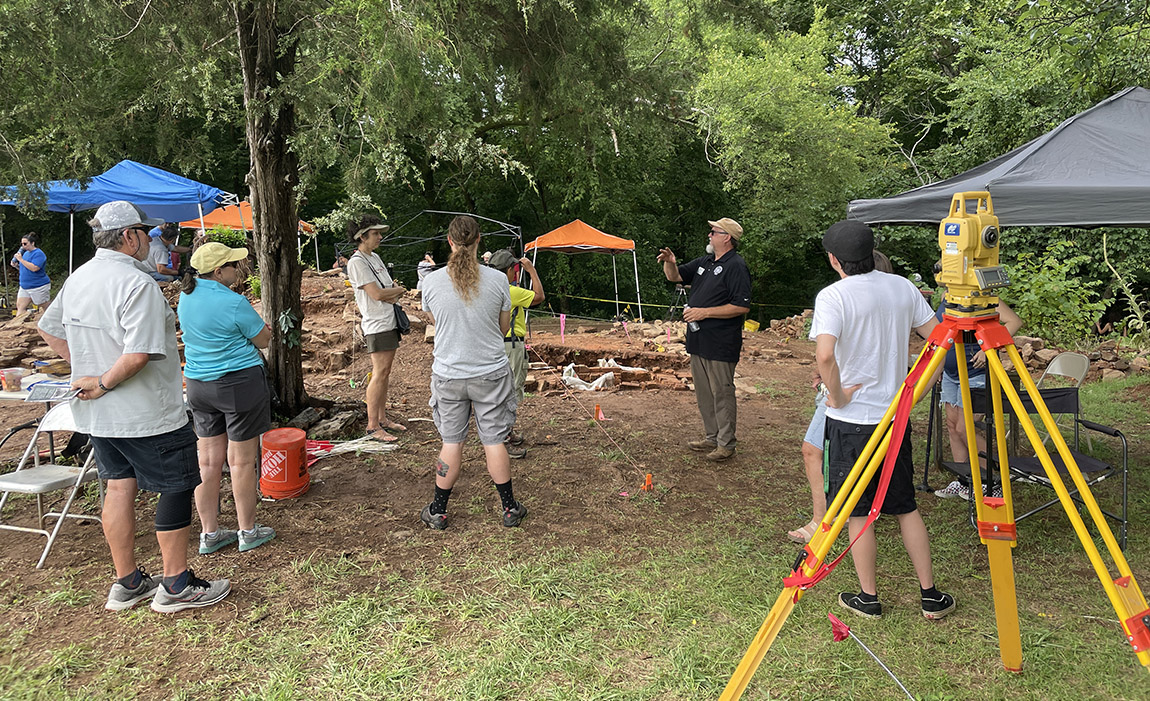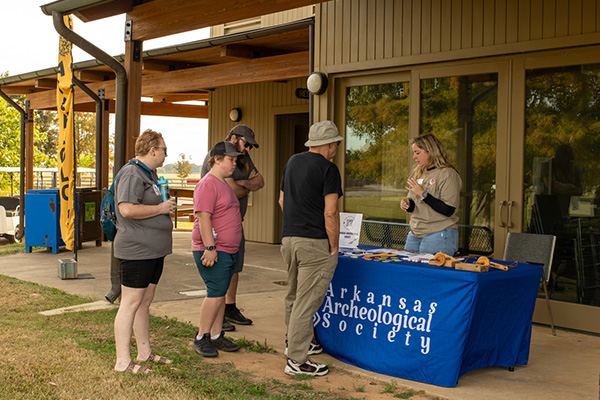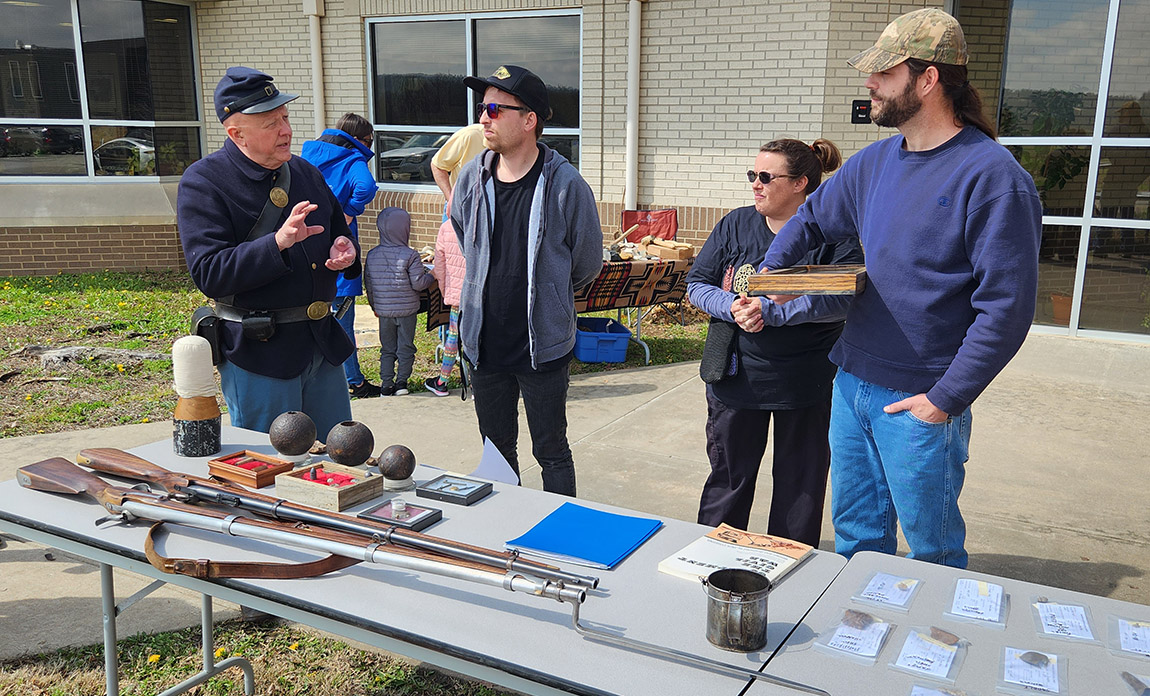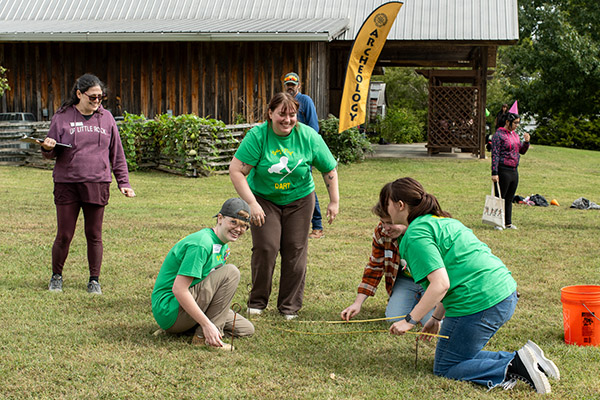
Michelle Rathgaber and Gillian Steeno
"Archeology is..." series - March 2024
In honor of Arkansas Archeology Month, the biggest collection of archeology public outreach events of the year, we felt it would be appropriate to write about how public outreach plays a vital role in the discipline. When we started our careers in archeology, neither of us thought that we would spend a lot of our time planning events or scheduling meetings to work with collaborators on various projects. However, public engagement is crucial to people’s understanding of what archeology is and what archeologists do.

Archeology is a science that many people in Arkansas are first exposed to outside of a formal museum or an excavation setting. We often interact with people at farmer’s markets, community events, presentations, and online who have found artifacts themselves or know someone who has. Sometimes they know what the artifacts are, where they came from, who made them, and why they are important. Other times, they do not. Many people have legitimate questions about the archeological artifacts that they have found or seen and want to know more about the people who created them. Most do not realize the potential harm in collecting artifacts without proper documentation, and after this realization, they want to do better.
Part of the Arkansas Archeological Survey’s mission is to share what we learn about the past with the public, so outreach is a necessary component of what we do. With the increasing popularity and media presence of archeological pseudoscience, public outreach becomes even more important. By making archeology more publicly accessible through presentations (both in person and virtual), showing up where people are (community events and trivia nights), and interacting on social media through videos and posts, we can let people know about the real archeological work being done around them and the amazing history of the land and the people who lived here, that have made up what is now the state of Arkansas.


